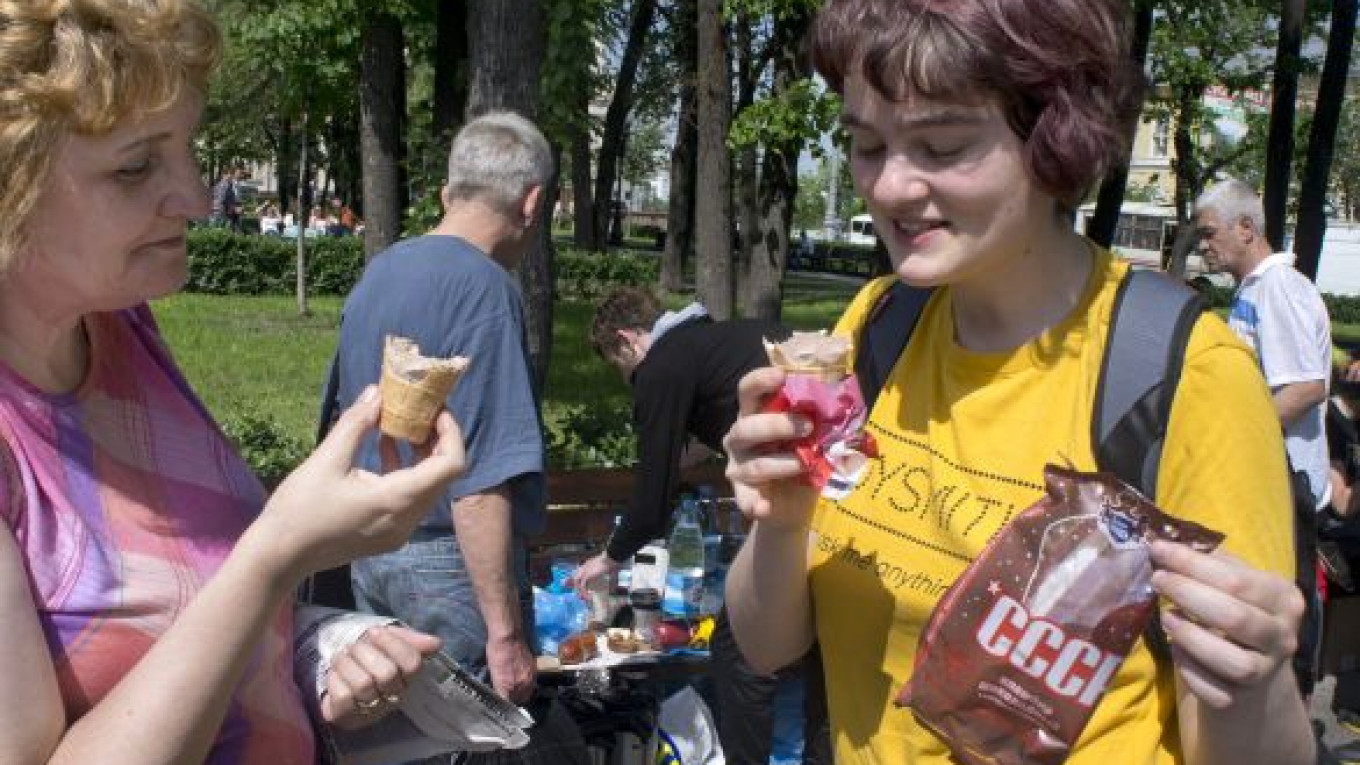Sokolniki Park is gearing up to welcome up to 400,000 guests to its annual ice cream festival next weekend, and among them several new guests — foreign companies.
The debut of foreign ice cream producers at the 16-year-old event may be an indication of the changes to come as Russia prepares to enter the World Trade Organization. Industry experts anticipate that WTO accession will increase competition on the market and potentially lead to a better quality of icy treats for customers.
Ice cream makers from Belarus, Spain and Lithuania will take part in the festival. Valery Yelkhov, head of the Russian Union of Ice Cream Makers, said competition may come from any WTO member once Russia accedes to the organization.
Local producers currently account for 98 percent of the ice cream market. Their products may remain more attractive to consumers due to their lower cost, but older Russian factories will have to modernize if they want to remain relevant, Yelkhov said.
Russia has about 200 ice cream-making plants, many of which are more than 50 years old. The last government-led reconstructions of milk plants took place two decades ago, and any new work will be costly. Each plant would have to spend several million dollars on modernization efforts, including the purchase of foreign-made equipment, Yelkhov said.
Some local producers have managed to pay for modernization, but progress is not countrywide.
"There is practically no national technical equipment. All the equipment is foreign, so voluntarily or not, we're not lagging behind the West," Yelkhov said of the modernized producers. "But other factories are not like this. There you can see old lines, and this is what worries us in terms of modernization."
The ice cream factories that appeared over the past 10 to 15 years are well equipped and making gains on the market. The franchised chain Baskin Robbins expanded its network in Russia by 40 percent in the past two to three years and acts as the official ice cream supplier to the Kremlin, said Agnessa Osipova, the Russian branch's general director.
Currently, 10 of the modernized companies, like Baskin Robbins, account for more than half of the country's ice cream stock.
Accession to the WTO is also expected to force ice cream makers to raise their quality standards. Some Russian products have been accused of not including any dairy ingredients. Andrei Minenkov, head of a distributor of Mars and Nestle ice cream, said he has been approached with offers to produce ice cream based on vegetable fat.
Yelkhov denied reports that there is ice cream on the Russian market that doesn't include dairy. He noted that a law, which came into effect in 2008, limits the use of milk fat substitutes to 50 percent.
"There is no such thing in Russia as ice cream that doesn't use milk. Forget about it," he said.
Union members are already voluntarily working to set higher standards on fruit, sherbet and fruit ice products and have allocated 2 million rubles ($64.6 million) to the effort. Yelkhov said he expects that accession to the WTO will motivate companies to continue this work.
The Russian ice cream market took a 12.7 percent dip in 2011 as the cost of raw milk products rose 30 percent. Production levels have since picked up, with first-quarter results showing a 10 percent increase as compared with the same period last year.
A Message from The Moscow Times:
Dear readers,
We are facing unprecedented challenges. Russia's Prosecutor General's Office has designated The Moscow Times as an "undesirable" organization, criminalizing our work and putting our staff at risk of prosecution. This follows our earlier unjust labeling as a "foreign agent."
These actions are direct attempts to silence independent journalism in Russia. The authorities claim our work "discredits the decisions of the Russian leadership." We see things differently: we strive to provide accurate, unbiased reporting on Russia.
We, the journalists of The Moscow Times, refuse to be silenced. But to continue our work, we need your help.
Your support, no matter how small, makes a world of difference. If you can, please support us monthly starting from just $2. It's quick to set up, and every contribution makes a significant impact.
By supporting The Moscow Times, you're defending open, independent journalism in the face of repression. Thank you for standing with us.
Remind me later.






